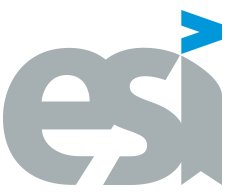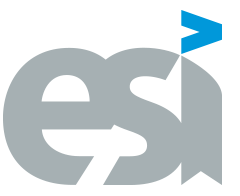The dark side of software
By Coral Calero (Professor of LSI and Director of the Green Algorithms Area. OdiseIA).
Organizations such as the United Nations Organization (UN) highlight the importance of reducing energy consumption and our carbon footprint, including this issue among its Millennium Development Goals (MDG[1]). ICT (Information and Communication Technologies) are key to contributing to these objectives and, in fact, there are many examples, from the software of a robot that cleans weeds from plantations by applying products only where necessary; going through applications used for the optimal use of energy in a home; or by general examples such as the Ecoembes Recycling Guide application, which helps the user to correctly separate waste.
However, we must be aware that ICTs also have a negative impact on the environment. So much so that there are already estimates that place them as responsible for 20% of global energy consumption in 2030[2]. And although ICT is not the same as software, the latter is part of the former and, as Stroustrup indicated[3], the world depends on software as well as on water. And it is that the software surrounds us and drives our day to day.
When we talk about software we are not only talking about software applications, we need to remember that there is also software in artificial intelligence and data management that are, perhaps, the most important challenges that we are facing today. that are becoming cornerstones of ICT.
By 2025, 463 exabytes of data will be created every day.[4] and that the application of data and artificial intelligence in Spanish industry will have an estimated impact on GDP of 16.500 million euros in 2025[5].
All of the above highlights the importance that software (in all its variants) has and will have in our lives. And with this scenario, therefore, it is essential to be aware of the energy resources necessary to make it work.
As an example, I will provide three conclusions from the research we carry out at the Escuela Superior de Informática in relation to the consumption of: generic software, artificial intelligence and data:
- Generic use software. When we do an internet search we use a search engine (Google, Bing, Ecosia, DuckDuckGo, etc.) that runs on a browser (Chrome, Edge, Firefox, Opera, Safari, Brave, etc.). According to our studies, the consumption saved by using the most efficient combination of browser and search engine instead of the most consuming for one year is not negligible, and can be used, for example, to illuminate the Eiffel Tower for more than 500 years.
- Artificial intelligence. In Artificial Intelligence, as Machine Learning training takes a long time, there are optimizations to reduce training time. In general, those optimizers that take more time (and therefore consume more energy) are the ones that achieve the best precision. Therefore, a decision based on that precision could lead to choosing them, justifying the higher consumption they require. However, in the cases studied, the difference in accuracy between the best and the worst optimizer was around 0.016% for what consumed 3 times more!!! Therefore, if the problem to be solved does not require that 0,016% more precision, considerable savings could be achieved.
- Data. One of the main problems with unleashed data production is that it needs to be stored and managed (worked with). Data compressors are algorithms that allow data to be stored saving space. Although some of these compressors are used only for data storage (decompression being necessary to be able to use them), there are other data compression algorithms that allow, in addition to compressing, to be able to work with these compressed data. The use of these data compression algorithms means that, in addition to saving 30% in storage size, savings of up to 50% of the energy consumption required for its use are achieved.
Although these are only small examples, they reflect a reality that we must take into account since software is present in many aspects of our lives and must continue to be so. We must not stop using it, we must be able to make it efficient. And that is one of the challenges that computer engineers face in order to offer efficient solutions and to do our bit to reduce energy consumption and carbon footprint, as indicated by the UN and the MDGs.
[1] http://www.un.org/millenniumgoals/
[2] AS Andrae and T. Edler, “On global electricity usage of communication technology: trends to 2030”
[3] Bjarne Stroustrup. Creator of the C++ language. The Technology Country. February 5, 2019
[4] https://www.raconteur.net/infographics/a-day-in-data/
[5] I INDESIA forum. https://www.iti.es/eventos/i-foro-indesia-el-impacto-de-la-inteligencia-artificial-en-la-industria/











